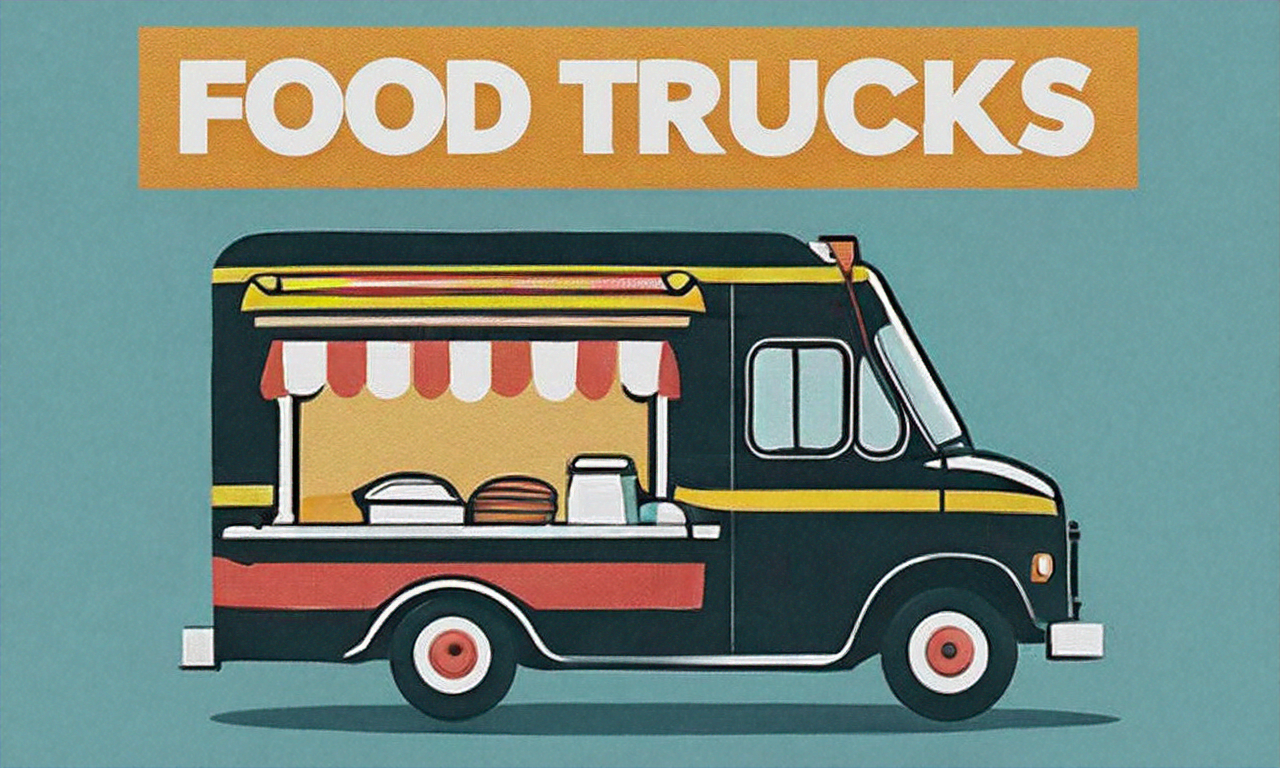Flexible Financing For Your Food Truck Business
Starting a food truck business is an exciting venture, but it often comes with significant upfront costs. Fortunately, flexible financing options are available to help aspiring food truck entrepreneurs turn their culinary dreams into reality without breaking the bank. This article explores various financing solutions that can make your food truck business more accessible and less financially daunting.

What are the main costs of starting a food truck business?
Before diving into financing options, it’s essential to understand the primary expenses associated with launching a food truck business. These typically include:
-
The food truck itself (new or used)
-
Kitchen equipment and appliances
-
Initial inventory and supplies
-
Licenses and permits
-
Insurance
-
Marketing and branding materials
The total investment can range from $30,000 to $200,000 or more, depending on factors such as the truck’s condition, equipment quality, and local regulations. This substantial upfront cost is why many entrepreneurs seek flexible financing options to get their business rolling.
How can flexible financing help start your food truck business?
Flexible financing options allow you to start your food truck with lower initial costs, spreading the financial burden over time. This approach offers several benefits:
-
Lower barrier to entry: You can launch your business with less capital on hand.
-
Improved cash flow: More funds are available for day-to-day operations and unexpected expenses.
-
Reduced financial stress: Smaller, regular payments are often more manageable than a large lump sum.
-
Opportunity to test the market: Some options allow you to trial your concept before fully committing.
By utilizing flexible financing, you can focus on perfecting your menu and building your customer base without the immediate pressure of substantial debt.
What are the most popular flexible financing options for food trucks?
Several financing options cater specifically to the needs of food truck entrepreneurs:
-
Equipment financing: Loans or leases specifically for purchasing the truck and kitchen equipment.
-
SBA microloans: Small loans (up to $50,000) backed by the Small Business Administration.
-
Rent-to-own agreements: Allows you to rent the food truck with an option to purchase later.
-
Lease-to-own programs: Similar to rent-to-own but with a clearer path to ownership.
-
Business lines of credit: Provides flexible access to funds as needed.
-
Crowdfunding: Raises small amounts from many individuals, often with pre-sale perks.
Each option has its pros and cons, and the best choice depends on your specific circumstances and business plan.
How does rent-to-own work for food trucks?
Rent-to-own agreements offer a unique opportunity to test your food truck concept before making a long-term commitment. Here’s how it typically works:
-
You enter into an agreement with a food truck provider.
-
You pay a monthly rental fee for the use of the truck.
-
A portion of your rental payments goes towards the purchase price.
-
After a predetermined period, you have the option to buy the truck outright.
This arrangement allows you to start operating with lower upfront costs while giving you time to establish your business and determine if food truck ownership is right for you. If successful, you can exercise your option to buy. If not, you can often walk away without further obligation, having gained valuable experience.
What are the benefits of lease-to-own for food truck businesses?
Lease-to-own programs provide a clear path to food truck ownership while offering financial flexibility. Key advantages include:
-
Lower initial costs compared to outright purchase
-
Predictable monthly payments for easier budgeting
-
Opportunity to build equity in the truck over time
-
Potential tax benefits (consult a tax professional for specifics)
-
Ability to upgrade equipment more easily
-
Option to purchase the truck at the end of the lease term, often at a reduced price
This financing method can be particularly attractive for entrepreneurs who are confident in their long-term plans but need time to build their business and credit profile.
How do costs compare among different financing options?
When considering financing options for your food truck business, it’s crucial to compare the costs and terms of various providers. Here’s a general comparison of some popular financing methods:
| Financing Method | Provider Example | Estimated Costs |
|---|---|---|
| Equipment Financing | Balboa Capital | 5-30% APR, 1-5 year terms |
| SBA Microloan | SBA-approved lender | 8-13% APR, up to 6 years |
| Rent-to-Own | Food Truck Company | $1,500-$3,000/month, 2-3 year terms |
| Lease-to-Own | Roaming Hunger | $1,000-$2,500/month, 3-5 year terms |
| Business Line of Credit | BlueVine | 15-78% APR, revolving credit line |
| Crowdfunding | Kickstarter | 5% platform fee + 3% payment processing |
Prices, rates, or cost estimates mentioned in this article are based on the latest available information but may change over time. Independent research is advised before making financial decisions.
When evaluating these options, consider not only the monthly payments but also the total cost over the life of the financing agreement. Factor in any down payments, fees, and the potential for building equity in your food truck. Remember that your credit score, business history, and specific equipment needs will influence the rates and terms available to you.
Flexible financing options have made it easier than ever to start your food truck business without the burden of significant upfront costs. Whether you choose to rent-to-own to test your concept, opt for a lease-to-own program for a clear path to ownership, or explore other financing methods, there’s likely a solution that fits your needs and budget. By carefully considering your options and planning your finances, you can turn your food truck dreams into a thriving business reality.






